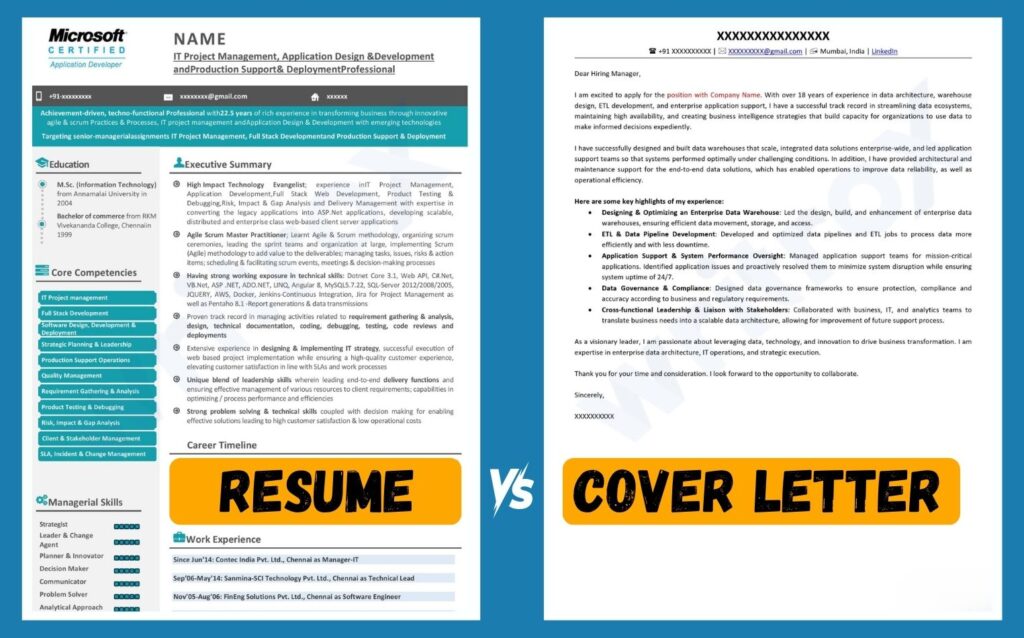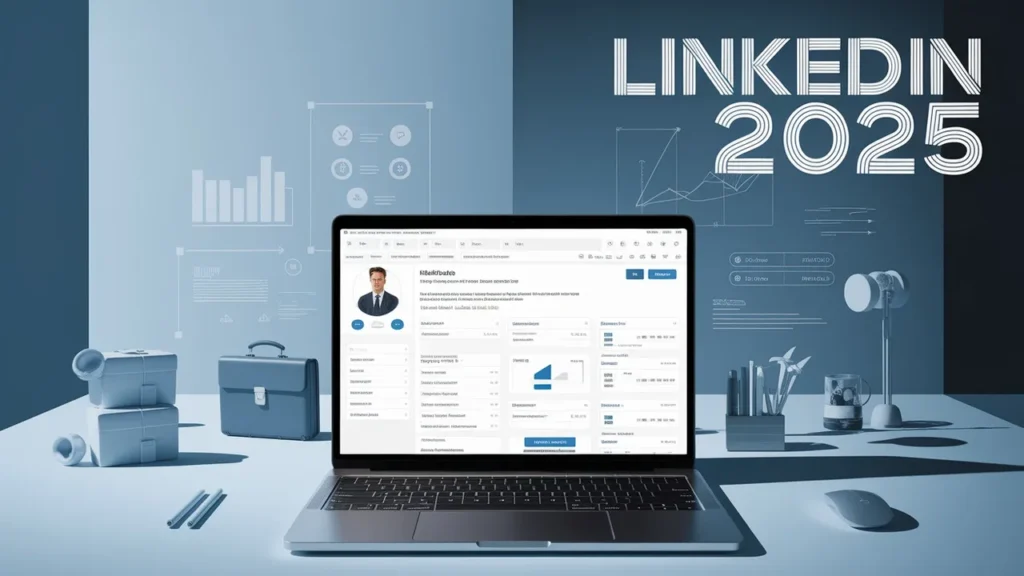Resume vs Cover Letter: What Are the Main Differences?
Are you confused about the role and key differences of a resume vs a cover letter in the hiring process? Do most sites even accept cover letters? Many job seekers ask how a resume and cover letter work together, especially now that AI screening and ATS systems filter out faulty ones easily. You must be informed well to deal with the evolving system. Understanding the difference between a resume and a cover letter is important as both can be included in your job application but serve different purposes. You must master both and avoid making common mistakes to leave a good and lasting impression with recruiters. Resume vs cover letter– let’s start by learning what both of these applications are. What is a Resume? A resume is a concise document that is preferably one page and at most two pages long, that is meant to summarize your professional background at one glance. Through a resume, you advertise your qualifications and work experience to recruiters. It is almost like your personal marketing tool- you want to show that recruiter in a split second that you are the best candidate for the job. Typical resumes are clean and structured. It can contain relevant experience, accomplishments (better with numbers like growth% & success rates), and skills often tailored to the job posting. Apart from that, it is very important for a resume to be ATS-friendly. You can’t afford to make mistakes in this competitive job market. Let’s start from the basics. What to Include in Your Resume? Contact Information: This is located at the top of your resume and must conventionally mention your name, phone number, email and LinkedIn profile. Education: Neatly mention the degrees you hold and add institution, graduation year and marks obtained (optional). Professional Summary: In this section you should summarize your intention, experience and key strengths in about 2–3 concise sentences. Work Experience: Include company name, position, dates, and bullet points highlighting your achievements in any previous position you have held. Key Skills: Mention your skill set honestly but you can also tailor it for the job description. Certifications: Mention any certifications or licenses that might be relevant to the job posting that you’re applying for. Keywords: You should incorporate words from the job posting to boost ATS compatibility. Also Read: How to Choose the Right LinkedIn Profile Maker? What is a Cover Letter? A cover letter is a varied reference letter that introduces your capabilities and experiences to a recruiter in detail. It often serves as a complement to your resume. While a resume is created in bullet-point format, a cover letter can allow you to tell your story in the form of a narrative. Through these letters you can propose ways in which your work can be valuable to the company, even though the job posting isn’t open yet. Mention how excited you are about the role, and how you see your skills and interests fitting this company’s needs. You can also make your case regarding salary hikes and other intentions you may have. Let’s discuss a formal approach to writing a cover letter. What to Include in Your Cover Letter Greeting: Address the hiring manager by name if possible. Dear Sir/Ma’am would work too. Opening Paragraph: State the role you’re applying for and why you’re interested. Highlight Key Strengths and Experience with Your Skills: Highlight your most relevant experience, skills, and achievements. Include statistics to add clarity. Why You Are a Fit: Explain how your objectives correspond to the company’s mission. Closing Paragraph: Express enthusiasm, thank the reader, and include a call to action (e.g., request an interview). Re-read the whole letter and especially the closing part to judge whether you’re making the impression you’re aiming for. Resume vs Cover Letter: Key Differences: Feature Resume Cover Letter Purpose Showcase qualification Introduces you and your interest Length 1-2 pages(preferably 1) Typically 1 page Focus Experience, skills, education Motivation, personality, and role-specific fit Personalization General with job-specific tweaks Highly tailored to each position ATS Role Must be ATS-optimized May be scanned by ATS but primarily for the recruiter When to Use Always with job applications When specified or when you want to stand out Similarities between Resume vs Cover Letter: While the resume is more about what you have done and accomplished, the cover letter talks about what you wish to achieve- essentially the context- the ‘why’ of your application. For both documents to be effective, they have to look professional, be properly formatted, and should be customized for the job you intend to apply to. It would also work to incorporate pertinent keywords found in the job description to get past any ATS scan and grab the recruiter’s attention. Having an inconsistent tone, style, or structure only reflects badly on your personal brand. With that established, a well-written resume and cover letter become your voice in the competitive job market and provide you with a competitive advantage. One need not have to choose between- Resume vs cover letter. Also Read: Not Getting Interview Calls? Here’s What’s Really Stopping You Examples of Resume and Cover Letter: Resume Example Format + Tips A well-structured resume is essential to pass through AI screening and ATS systems. Here’s a simple outline you can follow:Resume Format: Contact Info: Name, phone, email, LinkedIn, location. Education: Mention degrees, institutions, graduation dates. Professional Summary: Brief snapshot of who you are and what are your goals. Work Experience: Mentions your job history (reverse-chronologically) with key responsibilities and achievements Key Skills: Mentions technical and soft skills relevant to a given job. Certifications: Relevant courses, licenses, or professional accreditation you may hold. Keywords: Terms to be included for fruitful ATS scans. ATS Formatting Best Practice: Use standard fonts, clear headings, and avoid graphics. Need help creating an ATS-friendly resume? Our professional resume writing services can help you craft a document that stands out and passes ATS scans with ease. Quick Tips: Use a standard point font like Arial or Calibri for readability. Font size must remain 11 to 14.
Resume vs Cover Letter: What Are the Main Differences? Read More »












